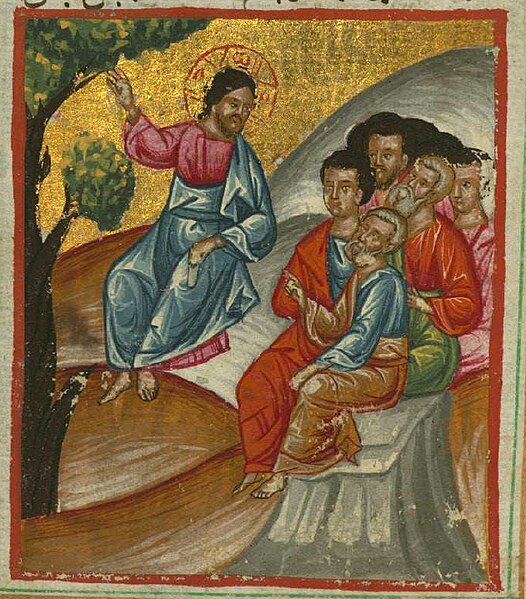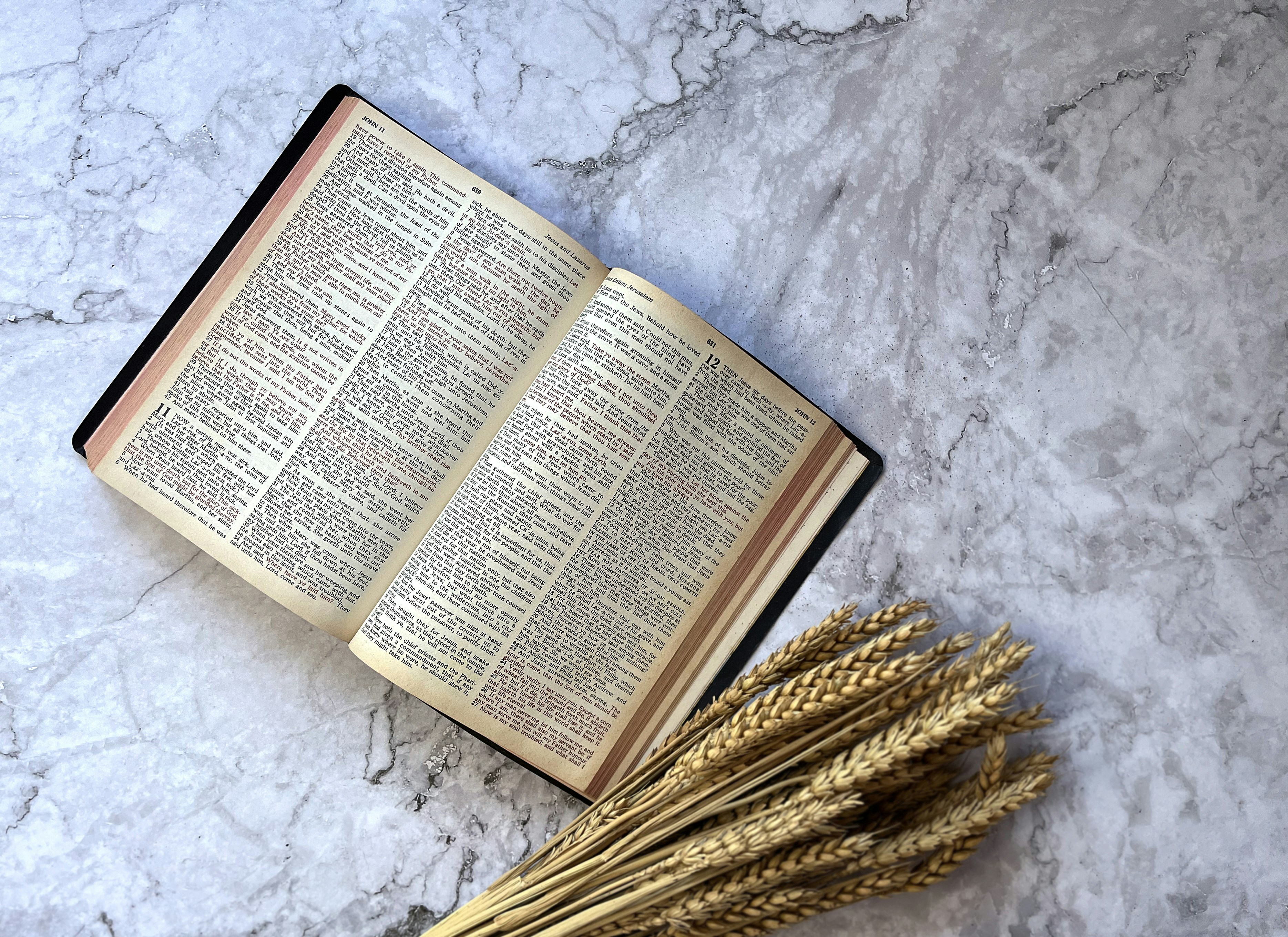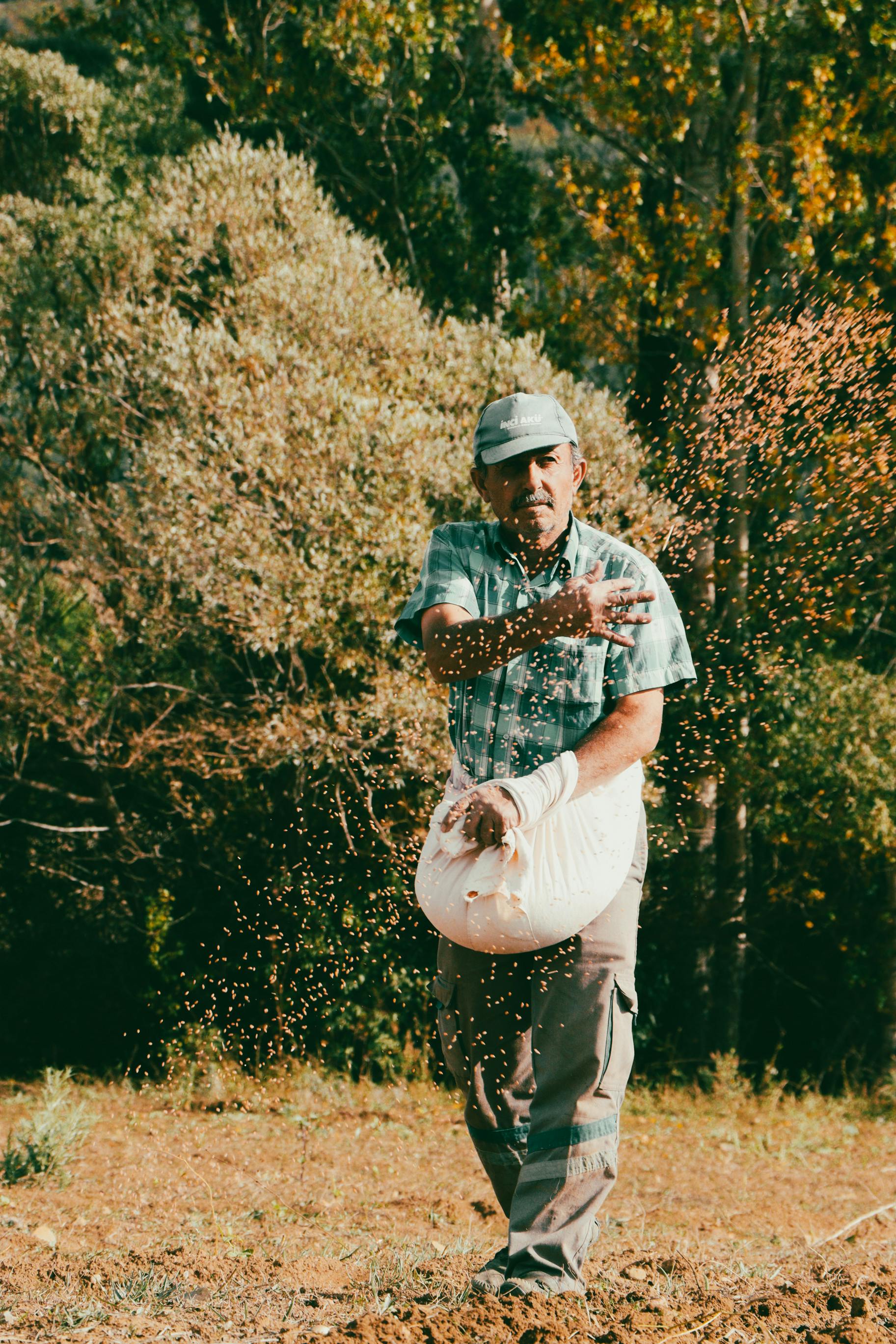What is going on in today’s Gospel? Jesus’ kinsmen take offense at Him, but they recognize His wisdom and miracles at the same time. It is as if they see that God is working but they do not see it at the same time. We would think that the people around Jesus would either recognize His divinity and worship Him or not recognize His divinity and peg Him as an impostor or worse. But His kinsmen in Nazareth do not do this. They recognize that someone greater than man is in their midst but still manage to take offense. Why is this?
The attitude of the Nazoreans speaks to a belief more pervasive today than we might first recognize. The Nazoreans believe in God, and they believe that He can do mighty deeds and communicate great wisdom, but they will not trust that He can do so in an ordinary person, someone they are familiar with. Jesus is their kinsman, and He evidently did not do many mighty deeds or say anything particularly profound in the first thirty years of His life, before He left for public ministry. The people say that they know His family and wonder where He got his wisdom and mighty deeds. Because of this, they take offense at Him.
This betrays that core belief: Surely, God would not give such extraordinary graces to an ordinary man whom they saw grow up. God only gives such graces to prophets, kings, and saints — and they don’t know any of those. At least they don’t think that they do. This is the issue. The people do not understand God’s ability, and maybe even His preference, to bestow graces on the ordinary.
This is a truth that we lose sight of as well. After all, when we are hoping for a specific grace in prayer and do not receive the answer we are looking for, we forget to notice the many other ways that God has been working in the more mundane moments of our lives. Not to mention the creative design with which God made the universe and continues to keep it in motion. It is practically a miracle that the world continues as it is, with such precision necessary to even keep our planet habitable. Combine this with things like fortuitous weather patterns and “chance” encounters with just the people we need to see, and we begin to understand God’s ways a bit better.
Jesus did not work many miracles in Nazareth because of their lack of faith. It wasn’t so much a lack of faith in God or in His ability to give grace, but rather a lack of faith that the miracles and wisdom of Jesus came from God at all. They couldn’t accept that God would do such things for the son of Joseph, and they probably didn’t think He would give them extraordinary graces either. So He didn’t. Let’s have more faith in God ourselves.
¿Qué sucede en el Evangelio de hoy? Los parientes de Jesús se ofenden con él, pero al mismo tiempo reconocen su sabiduría y sus milagros. Es como si vieran la obra de Dios, pero no la vieran al mismo tiempo. Pensaríamos que quienes rodeaban a Jesús reconocerían su divinidad y lo adorarían, o bien no la reconocerían y lo tacharían de impostor o algo peor. Pero sus parientes de Nazaret no lo hacen. Reconocen que alguien superior al hombre está entre ellos, pero aun así se ofenden. ¿Por qué?
La actitud de los nazarenos refleja una creencia más extendida hoy de lo que podríamos imaginar a primera vista. Los nazarenos creen en Dios y creen que puede realizar proezas y comunicar gran sabiduría, pero no confían en que pueda hacerlo en una persona común, alguien a quien conocen. Jesús es su pariente, y evidentemente no realizó muchas obras poderosas ni dijo nada particularmente profundo en los primeros treinta años de su vida, antes de partir al ministerio público. La gente dice conocer a su familia y se pregunta de dónde obtuvo su sabiduría y sus obras poderosas. Por eso, se ofenden con Él.
Esto delata esa creencia fundamental: seguramente, Dios no concedería gracias tan extraordinarias a un hombre ordinario al que vieron crecer. Dios sólo concede tales gracias a profetas, reyes y santos, y ellos no conocen a ninguno de ellos. Al menos no creen conocerlos. Este es el problema. La gente no comprende la capacidad de Dios, y tal vez incluso su preferencia, para otorgar gracias a la gente común.
Esta es una verdad que también pasamos por alto. Después de todo, cuando esperamos una gracia específica en oración y no recibimos la respuesta que buscamos, olvidamos las muchas otras maneras en que Dios ha estado obrando en los momentos más cotidianos de nuestra vida. Sin mencionar el diseño creativo con el que Dios creó el universo y lo mantiene en movimiento. Es prácticamente un milagro que el mundo siga como está, con la precisión necesaria incluso para mantener nuestro planeta habitable. Si a esto le sumamos factores como los patrones climáticos fortuitos y los encuentros casuales con las personas que necesitamos ver, comenzamos a comprender mejor los caminos de Dios.
Jesús no obró muchos milagros en Nazaret debido a su falta de fe. No era tanto falta de fe en Dios ni en su capacidad para dar gracia, sino más bien falta de fe en que los milagros y la sabiduría de Jesús provenían de Dios. No podían aceptar que Dios hiciera tales cosas por el hijo de José, y probablemente tampoco creían que les concedería gracias extraordinarias. Así que no lo hizo. Por nuestra parte, tengamos más fe en Dios.
 David Dashiell is a freelance author and editor in the Nashville, Tennessee area. He has three children, a degree in theology, and enjoys writing about philosophy, theology, culture, music, and comedy. You can find his personal blog, Serious Daydreams, on Substack. He is also the editor of the anthology Ever Ancient, Ever New: Why Younger Generations Are Embracing Traditional Catholicism, available through TAN Books.
David Dashiell is a freelance author and editor in the Nashville, Tennessee area. He has three children, a degree in theology, and enjoys writing about philosophy, theology, culture, music, and comedy. You can find his personal blog, Serious Daydreams, on Substack. He is also the editor of the anthology Ever Ancient, Ever New: Why Younger Generations Are Embracing Traditional Catholicism, available through TAN Books.
Feature Image Credit: Ilyas Basim Khuri Bazzi Rahib, commons.wikimedia.org/wiki/File:Jesus_teaching_his_disciples.jpg
The views and opinions expressed in the Inspiration Daily blog are solely those of the original authors and contributors. These views and opinions do not necessarily represent those of Diocesan, the Diocesan staff, or other contributors to this blog.


 Former NPS Park Ranger, Catholic educator, and Youth Minister, Melissa Lucca now spends her days evangelizing family and neighbors as a stay-at-home mom. She holds an MA in Theology from the Augustine Institute and pursues personal study in her spare time. Melissa loves Ignatian Spirituality, Mother Mary, and rock climbing. If you don’t hear her and her kiddo laughing at home, then they are probably out on an adventure!
Former NPS Park Ranger, Catholic educator, and Youth Minister, Melissa Lucca now spends her days evangelizing family and neighbors as a stay-at-home mom. She holds an MA in Theology from the Augustine Institute and pursues personal study in her spare time. Melissa loves Ignatian Spirituality, Mother Mary, and rock climbing. If you don’t hear her and her kiddo laughing at home, then they are probably out on an adventure!
 Deanna G. Bartalini, M.Ed.; M.P.A., is a certified spiritual director, writer, speaker and content creator. The
Deanna G. Bartalini, M.Ed.; M.P.A., is a certified spiritual director, writer, speaker and content creator. The 
 Tami Urcia is a midwestern gal from a large Catholic family. As a young adulthood she was a missionary in Mexico, where she studied theology and philosophy. After returning stateside bilingual, she gained a variety of work experience, traveled extensively and finished her Bachelor’s Degree at Brescia University. She loves organizing and simplifying things, watching her children play sports, deep conversations with close family and friends and finding unique ways to brighten others’ day with Christ’s love. She works full time at Diocesan in the Software Department and manages the Inspiration Daily reflections. She is also a contributing writer on
Tami Urcia is a midwestern gal from a large Catholic family. As a young adulthood she was a missionary in Mexico, where she studied theology and philosophy. After returning stateside bilingual, she gained a variety of work experience, traveled extensively and finished her Bachelor’s Degree at Brescia University. She loves organizing and simplifying things, watching her children play sports, deep conversations with close family and friends and finding unique ways to brighten others’ day with Christ’s love. She works full time at Diocesan in the Software Department and manages the Inspiration Daily reflections. She is also a contributing writer on 




 Merridith Frediani loves words and is delighted by good sentences. She also loves Lake Michigan, dahlias, the first sip of hot coffee in the morning, millennials, and playing Sheepshead with her husband and three kids. She writes for Catholic Mom, Diocesan.com, and her local Catholic Herald. Her first book Draw Close to Jesus: A Woman’s Guide to Adoration is available at Our Sunday Visitor and Amazon. You can learn more at
Merridith Frediani loves words and is delighted by good sentences. She also loves Lake Michigan, dahlias, the first sip of hot coffee in the morning, millennials, and playing Sheepshead with her husband and three kids. She writes for Catholic Mom, Diocesan.com, and her local Catholic Herald. Her first book Draw Close to Jesus: A Woman’s Guide to Adoration is available at Our Sunday Visitor and Amazon. You can learn more at 
 Hailing from Nashville, Catherine is a graduate of Christendom College with a lifelong passion for words. Her love of writing and her Catholic Faith continue to shape her as a freelance editor, copywriter, and (aspiring) novelist, where she pursues her passions for the love and greater glory of God.
Hailing from Nashville, Catherine is a graduate of Christendom College with a lifelong passion for words. Her love of writing and her Catholic Faith continue to shape her as a freelance editor, copywriter, and (aspiring) novelist, where she pursues her passions for the love and greater glory of God.
 Pamela Kavanaugh is a grateful wife, mother, and grandmother who has dedicated her professional life to Catholic education. Though she has done her very best to teach her students well in the subjects of language and religion, she knows that she has learned more than she has taught. She lives, teaches, and writes in southwest suburban Chicago.
Pamela Kavanaugh is a grateful wife, mother, and grandmother who has dedicated her professional life to Catholic education. Though she has done her very best to teach her students well in the subjects of language and religion, she knows that she has learned more than she has taught. She lives, teaches, and writes in southwest suburban Chicago.